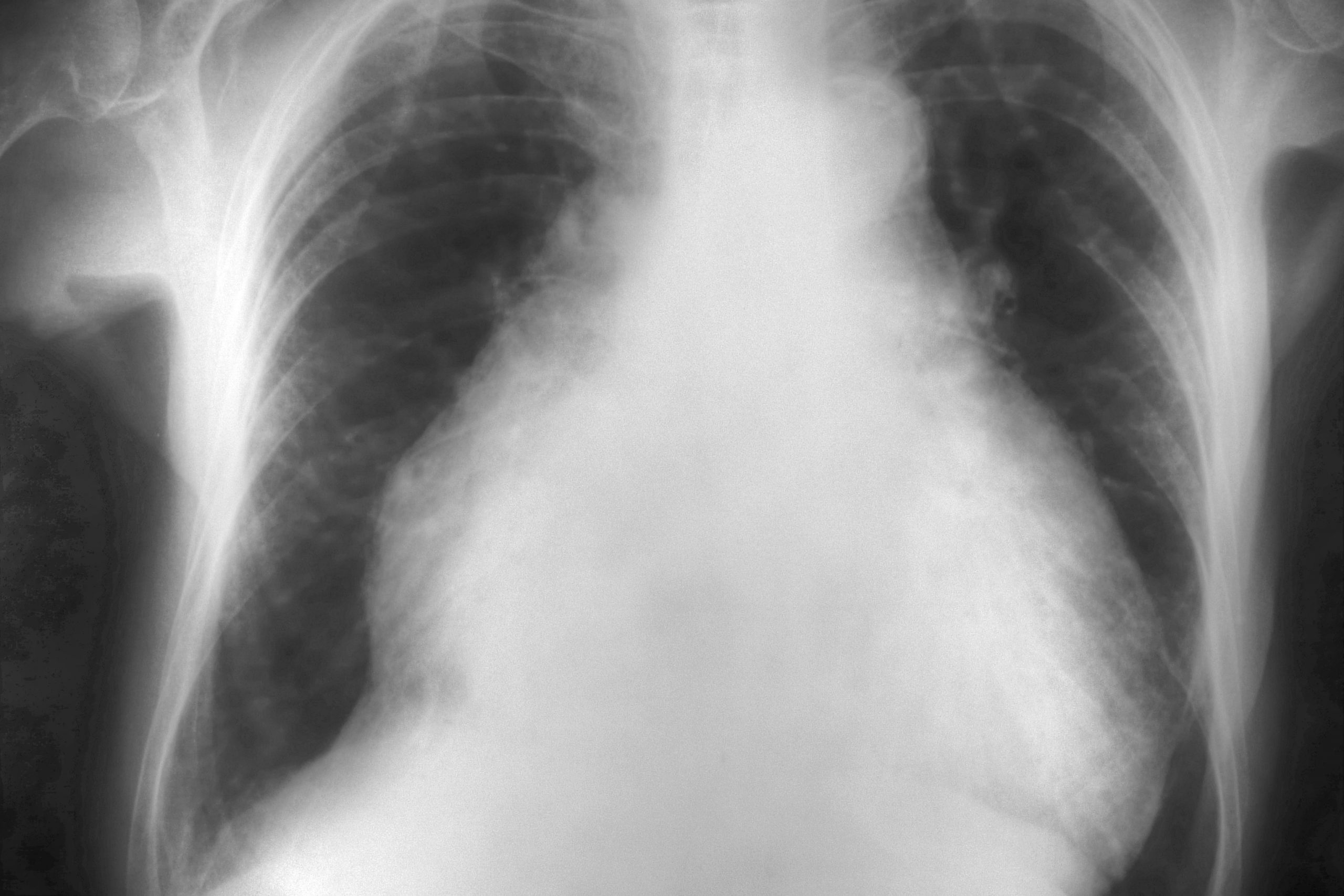
Cardiomegaly: symptoms, congenital, treatment, diagnosis by X-ray
Cardiomegaly’ in medicine refers to an increase in the volume or mass of the heart due to increased wall thickness or abnormal dilatation of its cavities
It is a generic term, which applies regardless of the cause.
It is not a pathology in itself, but is instead the manifestation of another pathology, usually a chronic one.
Pathological causes of cardiomegaly
Cardiomegaly can be congenital in nature, or be secondary to metabolic diseases (glycogenosis) or pathologies of the heart muscle such as inflammatory diseases or metabolic disorders of the myocardium (myocarditis).
ECG EQUIPMENT? VISIT THE ZOLL BOOTH AT EMERGENCY EXPO
Causes that can directly and indirectly lead to cardiomegaly are:
- diabetes;
- hypertension of the pulmonary circulation;
- obesity;
- heart valve pathologies (insufficiencies, stenosis and prolapses);
- arterial hypertension;
- myocardial infarction;
- anaemias;
- toxoplasmosis;
- arrhythmia;
- congenital defects (present from birth);
- thyroid disorders;
- haemochromatosis (inability to metabolise iron correctly);
- cardiac amyloidosis (deposition of abnormal proteins in the heart);
- Chagas disease;
- Lyme disease;
- Cooley’s disease);
- Down syndrome;
- coronary artery disease.
Physiological causes of cardiomegaly
Cardiomegaly can also be physiological when it is due to intense and prolonged exertion and training typical of professional athletes: this condition is known as ‘athlete’s heart’.
Another case in which cardiomegaly occurs is pregnancy.
Symptoms of cardiomegaly
Cardiomegaly, especially in the early stages, can be completely asymptomatic (i.e. give no signs or symptoms of its presence) or give mild and/or unspecific symptoms such as fatigue and easy fatigability even with mild exertion.
In the later stages, symptoms become more intense and include:
- dyspnoea
- oedema in the lower limbs
- heavy legs;
- arrhythmias;
- palpitations;
- chronic fatigue.
The first signs of a possible heart problem should be followed by a cardiologist’s consultation, since early diagnosis makes it easier to treat the condition.
Diagnosis
To make the diagnosis, the doctor relies on the clinic (anamnesis and objective examination) and a series of examinations such as
- chest X-ray: the cardiac shadow appears characteristically increased;
- electrocardiogram: may show rhythm alterations or other abnormalities related to the electrical activity of the enlarged heart;
- ultrasound with cholordoppler: which shows thickening of the heart walls and possible valvulopathies that may play a role in the pathogenesis of the cardiomegaly;
- stress test.
In cases of doubt, the doctor will prescribe other tests, such as: CT scan, nuclear magnetic resonance imaging, blood tests and cardiac biopsy.
Consequences and treatment
Cardiomegaly chronically leads to a state of heart failure and in some cases the only really effective solution is cardiac transplantation.
In less severe stages, however, it is possible to slow down the progression of the disease by treating the underlying cause.
Antihypertensive drugs (diuretics, beta-blockers and ACE inhibitors) are very useful in this regard, since hypertension is one of the most common causes of cardiomegaly.
Other drugs that can improve the situation are:
- digoxin: increases the contraction force of the myocardium, ‘helping’ the heart to pump blood;
- anticoagulants: act by inhibiting blood clotting, lowering the risk of blood clot formation (responsible for strokes or heart attacks) typically increased in cases of cardiomegaly;
- antiarrhythmics: keep the heart rhythm stable, which is often altered in cases of cardiomegaly.
In cases of advanced and severe cardiomegaly, possible treatments are more invasive and consist of:
- pacemaker implantation
- implantation of a defibrillator (ICD);
- heart transplantation.
Prevention and slowing
Cardiomegaly can be prevented and – if present – slowed down in its progression by following a few tips
- control blood pressure
- control diabetes;
- lose weight;
- follow a balanced diet;
- stop smoking;
- take regular physical activity;
- decrease stress factors.
Read Also:
Emergency Live Even More…Live: Download The New Free App Of Your Newspaper For IOS And Android
Heart Disease: What Is Cardiomyopathy?
Inflammations Of The Heart: Myocarditis, Infective Endocarditis And Pericarditis
Heart Murmurs: What It Is And When To Be Concerned
Broken Heart Syndrome Is On The Rise: We Know Takotsubo Cardiomyopathy
What Is A Cardioverter? Implantable Defibrillator Overview
‘D’ For Deads, ‘C’ For Cardioversion! – Defibrillation And Fibrillation In Paediatric Patients
Cardiomyopathies: What They Are And What Are The Treatments


